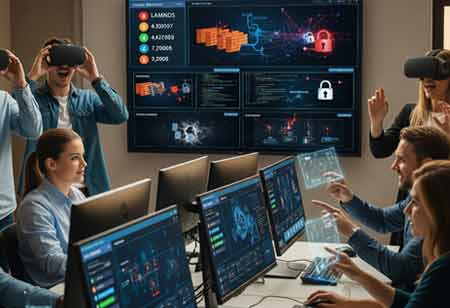THANK YOU FOR SUBSCRIBING
How AI can Increase Efficiency in Healthcare amid Pandemic
Modern technology does not replace human expertise, as human feedback is an essential part of the AI relationship. Instances of the growing relationship between AI and subject matter experts are quite clear in recent medical research.

By
Apac CIOOutlook | Tuesday, March 02, 2021
Stay ahead of the industry with exclusive feature stories on the top companies, expert insights and the latest news delivered straight to your inbox. Subscribe today.
Modern technology does not replace human expertise, as human feedback is an essential part of the AI relationship. Instances of the growing relationship between AI and subject matter experts are quite clear in recent medical research.
Fremont, CA: Artificial intelligence is sometimes featured in popular movies and TV dramas as the technology that is determined to rule the world.
Thankfully, these ominous depictions are not what happening in reality, where AI may actually save lives as well as improve work-life balance. The main duty of AI is to comb large data sets quickly as well as more effective than any human could, and also analyze patterns that could prove useful. This enables people working with AI to focus on more important tasks, while the AI rummages through the data in the background and surfaces only the information wanting attention.
An interesting aspect of AI is that the technology, in most cases, acts as an extension of its team, augmenting the ability of experts to be more efficient.
Modern technology does not replace human expertise, as human feedback is an essential part of the AI relationship. Instances of the growing relationship between AI and subject matter experts are quite clear in recent medical research.
Some types of AI have been trained to "understand" images. These systems have been shown to be as good as or better than trained physicians to detect tuberculosis in chest x-rays or to pick up cancer cells in a large microscopy image. Computers do not suffer from fatigue or error in the same way that a human being can do after a long day of imaging. Furthermore, some AI programs can predict adverse cardiovascular events at a more accurate rate than humans utilizing the American College of Cardiology/American Heart Association guidelines.
However, it must be understood that, in each of these cases, it was human expertise that showed the machines what they needed to learn and is now working with them after their data analysis has been completed. Even the most sophisticated autopilot aircraft still needs a true pilot's judgment in the cockpit.





